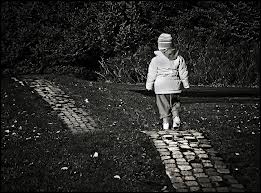This is Part 2 the story into which I was born. From these tales of my parents early lives together, I see how my parents beliefs have contributed to my belief system. This is true for everyone, no matter the generation, culture, religion or race. We are “domesticated” as Don Ruis calls it. Our attitudes and values are reinforced and added to our “pot” of “how to” be a person. We can learn so much about ourselves when we listen to our own stories.
~~~~~~~~~~~~~~~~~~~~~~~~~~~~~~~~~~~~~~~~~~~~~~~~~~~~~~~~~~~~~~~~~
At 10:30 in the morning, most of girls looked fresh from the mirror having just made a point of applying a new coat of red lipstick and patting up hairdos mussed up by the breeze. They were preening before they put on the new smocks my grandfather had purchased just the week before. Janice, the office busybody who said exactly what she thought, said in a chirrupy voice, “I don’t want to look like some mother-to-be at the corner grocery store. I’m a working girl, doncha know?”
Now, my mother thought Janice was pretty shameless making a declaration to the boss about what she would and wouldn’t wear, even though none of the girls, including my mother, wanted to wear a blousy, apron-like tent that came in sick green or pale yellow. Janice said he should have asked her to pick them out!
Not one of them wanted to box up dusty, yellowing papers written in pencil lead that was barely legible. Janice refused to go into the dim, dirty space under the stairs where the spiders, mice and rats had taken to nesting in the piles of old files. But my mother did her part. After 15 minutes, she came back out to the main office with a smear of dust on her face and a trolley full of files.

The sunlight was falling from the windows along the ceiling quite nicely despite the streaks of grime collected on the glass. Long sunbeams cascaded onto the silent ranks of grey filing cabinets standing along two walls. That eventful Monday, the three clattering Underwood typewriters in the middle of room were silent and tucked away out of sight on the spring loaded trays of the big wooden desks.
I can imagine my father right about then, dressed in his freshly pressed uniform and polished shoes, smelling of shaving soap and sunshine, sitting cross legged in a tilting wooden chair just outside my grandfather’s office. I can imagine him eyeing the birds with a quick, shy grin. A crowd of girls might have gathered hoping to meet him. After all, he was the Boss’ son. And he had a mature, worldly manner about him. They knew he was just back from overseas and glad to be home. They also knew that he, like a lot of other boys just coming back from the war, needed time, attention and care.
My father might have been telling tales about London, or waiting to be shipped to France, or being engaged to a gorgeous English girl. He’d have said she dumped him for a British Air Force officer. According to my father, he wasn’t going to take guff from any girl, because, he claimed, if he asked a girl out and she said no, there’d be no second chances for her.
My mother never said whether she’d been listening as she bustled past the S – Z filing cabinet, or whether she heard the story he was telling about dancing at the Red Cross dances. She’d noticed, however, how scrawny he was, and how dark the circles were beneath his eyes. She noticed the nervous way he flicked the ashes from his cigarette into the overflowing ashtray on the worn lino floor. But my mother, being the smart one she is, knew a little about how he looked before the war. She’d seen his picture, the one in which he held up a fine catch of bass and beamed from ear to ear, the picture sitting right there on the windowsill above the radiator in my grandfather’s office.
My mother wouldn’t have said anything to him of course. She might have picked up bits of conversation as she bent down to open the bottom drawer of the filing cabinet to remove files of soldiers Missing in Action, 1918. I can imagine her blushing as she looked up to see him watching her. She would have gone all flustered. I wouldn’t be surprised if my father had continued to watch her, sneaking a peak at the seams of her stockings. He always claimed to be a leg and hip man.
The next day my father showed up in the office at about noon, and this time he was bolder. He managed to place himself in just the right spot, at just the right time. The lunch bell sounded and the whole Steno Pool flock scattered from their places and headed for the coat rack. He was holding open the frosted glass office door, and he smiled at her when she thanked him. It took him a few tries to get out the question. “Would you like to take in a movie on Friday night?”
 Now that seems like a pretty easy question to me, but my mother wasn’t quite sure if he had been bluffing about taking guff from girls who said no. So when he suggested going to the pictures to see “A Walk in the Sun” with Dana Andrews, my mother wanted to say, “Yes.” A movie with the Boss’ son, and ice cream on the way home seemed a fine way to spend an evening. On the other hand, she may have been playing a little hard to get, as some young women do. Anyway, she told him no thanks, she had other plans.
Now that seems like a pretty easy question to me, but my mother wasn’t quite sure if he had been bluffing about taking guff from girls who said no. So when he suggested going to the pictures to see “A Walk in the Sun” with Dana Andrews, my mother wanted to say, “Yes.” A movie with the Boss’ son, and ice cream on the way home seemed a fine way to spend an evening. On the other hand, she may have been playing a little hard to get, as some young women do. Anyway, she told him no thanks, she had other plans.
Movie stars like Gene Tierney and Andrews were all the rage during that spring when Ottawa was the location for filming, and my mother had even skipped lunch and waited for an hour in the rain with her office friends just to see the cast walk by. It wasn’t the wet and cold that spoiled it for her though. It was the fact that both of them had come staggering out of the Carleton Hotel drunk as skunks.
Andrews was dressed in a rumpled Yankee Army uniform with his hat cocked back on his head and a cigarette hanging from his mouth. No Canadian soldier would ever have gone out in public looking like that. And Gene Tierney, who they all thought of as fine actress, surprised them all by wobbling on her heels and hanging on Andrews’ arm like some lovesick puppy. Even so, my mother was a fan.
My father was not about to give up easily. He surprised my mother by asking her out again. This time she really was busy. Remembering his comments about giving up on girls who said no, my mother added quickly, “But I could come next Friday.” With a big grin, my father said he’d pick her up at 6:03 so they could make the 6:17 street car and still be at the theatre by 7:30. However, after all that, the next Friday he didn’t show. Since it was a long way out to Rockcliffe Park, she gave him the benefit of the doubt for awhile. She waited on the porch, all dressed up in a brand new cotton seersucker suit for two hours. By 8:00 she had decided he was a chump and not worth the wait.






